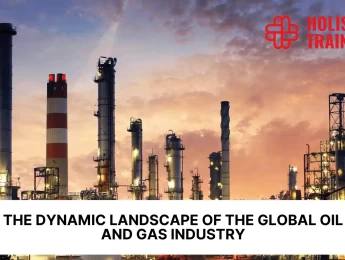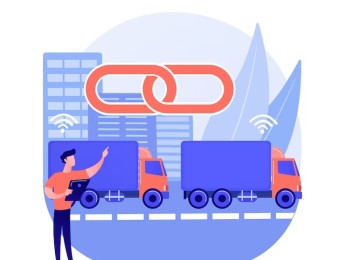Introduction
The oil and gas industry stands as a linchpin in the intricate machinery of the global economy, exerting profound influence across diverse sectors and shaping the socio-economic fabric of nations. Beyond its foundational role in providing energy, this industry permeates crucial aspects such as trade balances, technological innovation, and geopolitical relations. As we delve into the multifaceted importance of the oil and gas sector, it becomes evident that its impact extends far beyond the extraction and distribution of fossil fuels. This comprehensive exploration navigates through the intricate web of economic, environmental, technological, geopolitical, and ethical dimensions that characterize the challenges and opportunities facing the oil and gas industry. From its pivotal role as an energy backbone to the pressing environmental concerns, technological adaptations, geopolitical intricacies, and the imperative for ethical conduct, this discourse delves into the intricate tapestry that defines the present and future of the oil and gas sector. In the face of evolving global dynamics, this article strives to illuminate the complexities and potential solutions that will determine the industry's role in sustaining the global economy while embracing a more sustainable and resilient future.
The Role of the Oil and Gas Industry in the Global Economy
The oil and gas industry holds paramount significance in the global economy, exerting a pervasive influence on various sectors and shaping the socio-economic landscapes of nations worldwide. Its importance extends far beyond mere energy provision, permeating into crucial aspects such as trade balances, job creation, technological innovation, and geopolitical relations. Here's an in-depth exploration of the multifaceted importance of the oil and gas industry to the global economy:
- Energy Backbone:
- The industry serves as the primary source of energy, providing the lifeblood for industrial processes, transportation, and households globally. Oil and gas collectively account for a significant share of the world's energy consumption, underpinning economic activities and maintaining the standard of living.
- Economic Growth and Development:
- Nations with abundant oil and gas resources often experience rapid economic growth. Revenue generated from exploration, production, and exports contributes substantially to gross domestic product (GDP), fostering economic development, infrastructure projects, and public services.
- Job Creation:
- The industry is a major employer, creating jobs across a spectrum of disciplines, including engineering, geology, logistics, and support services. Employment opportunities span from exploration and production sites to downstream refining and distribution networks, positively impacting local and national labor markets.
- Trade Balance and Foreign Exchange:
- Oil and gas exports play a pivotal role in shaping the trade balances of many countries. Nations endowed with significant reserves often rely on energy exports to earn foreign exchange, reducing trade deficits and enhancing economic stability.
- Investment and Capital Flows:
- The oil and gas sector attracts substantial investments, both domestic and foreign. Capital-intensive projects, such as exploration and drilling, stimulate economic activity and contribute to the development of ancillary industries, fostering a robust investment environment.
- Technological Innovation:
- The industry is a catalyst for technological innovation. Advances in exploration techniques, extraction methods, and refining processes not only improve efficiency within the sector but also have broader applications across diverse industries, contributing to overall technological progress.
- Geopolitical Influence:
- Control over oil and gas resources can confer significant geopolitical leverage. Nations possessing abundant reserves often play pivotal roles in global affairs, influencing diplomatic relations and strategic alliances.
- Infrastructure Development:
- The oil and gas industry necessitates a vast network of infrastructure, including pipelines, refineries, and storage facilities. The development and maintenance of this infrastructure contribute to economic activity and employment opportunities in the construction and logistics sectors.
- Financial Markets and Investment Instruments:
- The industry has a substantial impact on financial markets, with oil prices serving as a critical benchmark. The creation of various financial instruments, such as futures and options contracts, provides avenues for investment and risk management, further integrating the industry into global financial systems.
- Downstream Industries and Value Chains:
- Oil and gas serve as feedstocks for a myriad of downstream industries, including petrochemicals, plastics, and pharmaceuticals. These industries generate additional economic value and diversify the global economic landscape.
Challenges Facing the Oil and Gas Industry
The oil and gas industry, a linchpin in global energy provision, confronts multifaceted challenges. From environmental concerns and technological shifts to geopolitical dynamics and social responsibilities, the sector navigates a complex landscape. This introduction paves the way for an in-depth analysis of the diverse challenges shaping the industry's present and future. Some of these challenges:
- Environmental Challenges
- Technological Challenges
- Geopolitical and Economic Challenges
- Social and Ethical Challenges
Environmental Challenges
Environmental challenges confronting the oil and gas industry have become increasingly prominent as societies worldwide grapple with the urgent need to address climate change and mitigate the impacts of fossil fuel extraction and consumption. These challenges span a spectrum of issues, ranging from greenhouse gas emissions and biodiversity loss to the management of waste and water resources. A comprehensive examination of these environmental concerns is crucial for fostering a sustainable and responsible future for the industry.
1. Greenhouse Gas Emissions:
One of the most pressing environmental challenges facing the oil and gas industry is the significant contribution to greenhouse gas emissions. The burning of fossil fuels, such as oil and natural gas, releases carbon dioxide (CO2) and other greenhouse gasses into the atmosphere, intensifying the greenhouse effect and contributing to global warming. The industry is under increasing pressure to reduce its carbon footprint and transition towards cleaner energy sources to align with global climate goals.
2. Impact on Air Quality:
In addition to greenhouse gas emissions, the extraction and refining processes of oil and gas can result in the release of pollutants that degrade air quality. Volatile organic compounds (VOCs), sulfur dioxide (SO2), and nitrogen oxides (NOx) are among the pollutants released, contributing to smog formation and posing health risks to nearby communities. Stringent emission control measures and the adoption of cleaner technologies are essential to mitigate these air quality concerns.
3. Biodiversity Loss:
Oil and gas exploration and extraction activities can have profound effects on biodiversity, particularly in ecologically sensitive areas. Habitat disruption, soil degradation, and water pollution can threaten the survival of plant and animal species, impacting ecosystems and the services they provide. Mitigating biodiversity loss involves adopting sustainable practices, implementing effective environmental impact assessments, and respecting protected areas to safeguard fragile ecosystems.
4. Water Resource Management:
The oil and gas industry requires significant amounts of water for extraction, production, and refining processes. Improper water management practices, such as water pollution and excessive consumption, can harm aquatic ecosystems and impact local communities that rely on these water sources. Sustainable water management, including water recycling and the use of environmentally friendly technologies, is crucial for minimizing the industry's impact on water resources.
5. Oil Spills and Contamination:
Accidental oil spills, whether from offshore drilling or transportation, pose severe threats to marine and terrestrial ecosystems. These spills can result in long-lasting environmental damage, affecting wildlife, coastal habitats, and local economies. Rigorous preventive measures, emergency response plans, and advancements in spill response technologies are essential for minimizing the environmental impact of potential oil spills.
6. Regulatory Compliance and Industry Standards:
Ensuring environmental protection requires robust regulatory frameworks and industry standards. However, enforcement can be challenging, and compliance varies globally. Strengthening regulations, fostering international cooperation, and incentivizing adherence to best practices are crucial steps in addressing environmental challenges facing the oil and gas industry.
7. Transition to Renewable Energy:
Perhaps the most transformative environmental challenge is the industry's transition toward renewable and sustainable energy sources. Embracing cleaner alternatives, such as solar, wind, and hydrogen, is essential for reducing dependence on fossil fuels and mitigating environmental impacts. This transition requires substantial investment in research and development, as well as a shift in both public and private sector priorities.
Technological Challenges
The oil and gas industry, traditionally at the forefront of technological innovation, faces a spectrum of challenges in adapting to a rapidly evolving technological landscape. These challenges are diverse and encompass exploration, extraction, refining, and distribution processes. Addressing these technological challenges is crucial not only for optimizing operational efficiency but also for positioning the industry in alignment with broader global trends and sustainability goals.
1. Exploration and Extraction Technologies:
The quest for new oil and gas reserves pushes the industry to continuously advance exploration and extraction technologies. As accessible reserves diminish, the industry must explore increasingly challenging environments, such as deep-sea drilling and unconventional resources like shale. Developing cost-effective and environmentally sustainable methods for exploration and extraction in these complex settings poses a significant technological challenge. Innovations in seismic imaging, drilling technologies, and reservoir management are critical to overcoming these challenges.
2. Advancements in Renewable Energy:
The global shift towards renewable energy sources presents both an opportunity and a challenge for the oil and gas industry. As the world transitions to cleaner energy alternatives, the industry must diversify and incorporate renewable technologies into its portfolio. This entails investing in solar, wind, and bioenergy solutions, as well as developing expertise in energy storage and grid integration. Integrating renewable technologies into traditional oil and gas operations requires strategic planning and substantial research and development efforts.
3. Digitalization and Industry 4.0 in Oil and Gas:
The Fourth Industrial Revolution, characterized by digitalization and automation, is transforming various industries, including oil and gas. The adoption of Industry 4.0 technologies, such as the Internet of Things (IoT), artificial intelligence (AI), and big data analytics, presents opportunities to enhance efficiency, reduce costs, and improve safety. However, integrating these technologies into existing infrastructure poses challenges related to cybersecurity, data privacy, and the upskilling of the workforce. Navigating the digital transformation requires strategic planning and a commitment to building a culture of innovation.
4. Environmental Monitoring and Compliance:
Increasing scrutiny and regulations surrounding environmental impact necessitate advanced monitoring technologies to ensure compliance with environmental standards. Continuous monitoring of emissions, water usage, and waste management is essential. Implementing robust environmental monitoring systems that provide real-time data for decision-making requires investments in sensor technologies, data analytics, and information management systems.
5. Decarbonization and Carbon Capture Technologies:
In response to global efforts to mitigate climate change, the oil and gas industry must explore decarbonization strategies and invest in carbon capture and storage (CCS) technologies. Implementing CCS at scale is a complex challenge, involving technological innovations to capture, transport, and store carbon dioxide emissions. Decarbonization efforts also require transitioning to low-carbon energy sources, such as hydrogen, to reduce the industry's overall carbon footprint.
6. Aging Infrastructure and Asset Management:
Many oil and gas facilities around the world are operating with aging infrastructure, which poses challenges in terms of reliability, efficiency, and safety. Adopting predictive maintenance technologies, sensor-based monitoring, and asset integrity management systems is crucial to ensure the longevity and optimal performance of existing infrastructure. Upgrading and retrofitting facilities to meet modern safety and environmental standards is a substantial technological undertaking.
7. Automation and Workforce Transition:
The increasing integration of automation, robotics, and artificial intelligence in oil and gas operations has implications for the industry's workforce. The transition to automated processes requires a workforce with new skill sets, creating challenges in workforce planning, training, and talent acquisition. Managing this transition effectively involves investing in education and training programs, as well as fostering a culture of adaptability within the industry.
8. Cybersecurity Risks:
As the industry embraces digital technologies, it becomes more susceptible to cybersecurity threats. Protecting critical infrastructure, sensitive data, and operational systems from cyberattacks is a paramount concern. Developing robust cybersecurity measures, including encryption, secure networks, and employee training, is essential to safeguarding the industry against potential disruptions and breaches.
Geopolitical and Economic Challenges
The oil and gas industry operates within a complex geopolitical and economic landscape, with challenges that stem from global competition, political tensions, economic downturns, and evolving energy dynamics. These challenges significantly impact the industry's stability, growth, and strategic decision-making, influencing both established and emerging players. A comprehensive understanding of these geopolitical and economic challenges is crucial for navigating the intricacies of the oil and gas sector.
1. Global Supply and Demand Dynamics:
Geopolitical events and economic trends have a direct impact on global supply and demand for oil and gas. The industry must navigate fluctuations in demand driven by economic growth, technological advancements, and shifts in consumer behavior. Additionally, geopolitical tensions or conflicts in major oil-producing regions can disrupt supply chains, affecting global prices and market stability.
2. OPEC and Non-OPEC Alliances:
The Organization of the Petroleum Exporting Countries (OPEC) plays a pivotal role in shaping global oil prices by coordinating production levels among member countries. The relationship between OPEC and non-OPEC nations, such as Russia, influences oil market dynamics. Changes in production quotas, geopolitical disputes among member countries, and the ability to maintain production discipline are ongoing challenges that impact market stability and oil prices.
3. Economic Downturns and Price Volatility:
The oil and gas industry is highly sensitive to economic downturns, with demand for energy closely linked to economic activity. Economic recessions can lead to decreased energy consumption, impacting oil and gas prices. Price volatility poses challenges for both producers and consumers, affecting investment decisions, project financing, and the overall financial health of companies operating in the sector.
4. Energy Transition and Shifting Priorities:
The global push toward sustainable and renewable energy sources poses a long-term challenge for the oil and gas industry. As countries strive to reduce their carbon footprint, policies supporting energy transition initiatives may lead to decreased reliance on fossil fuels. This transition necessitates strategic planning and diversification efforts within the industry to adapt to changing energy priorities and remain competitive.
5. Trade Wars and Sanctions:
Geopolitical tensions, trade disputes, and the imposition of economic sanctions can significantly impact the oil and gas industry. Trade restrictions and sanctions can affect the flow of oil and gas, limit access to markets, and disrupt established supply chains. Companies operating in regions subject to sanctions may face challenges in financing, project development, and international partnerships.
6. Geopolitical Risks in Key Regions:
The concentration of significant oil and gas reserves in politically sensitive regions introduces geopolitical risks. Political instability, conflicts, and regime changes in major oil-producing countries can lead to supply disruptions and impact global energy security. Companies operating in these regions must navigate the complexities of local politics and geopolitical tensions to ensure operational continuity.
7. Infrastructure Investment Challenges:
Developing and maintaining the infrastructure required for oil and gas extraction, transportation, and refining is a significant economic challenge. Political and economic uncertainties can hinder investments in critical infrastructure projects, leading to delays, cost overruns, and inefficiencies. Ensuring a stable and supportive investment environment is essential for the industry's long-term success.
8. Regulatory and Fiscal Policies:
The oil and gas industry operates under various regulatory frameworks and fiscal policies that differ across countries. Changes in tax regimes, environmental regulations, and geopolitical considerations can impact the profitability of projects and influence investment decisions. Companies must navigate evolving regulatory landscapes and anticipate the potential impact on their operations.
Social and Ethical Challenges
The oil and gas industry faces a myriad of social and ethical challenges that extend beyond operational considerations to encompass issues related to community impact, ethical decision-making, and workforce diversity. As societies become increasingly conscious of corporate social responsibility and ethical practices, the industry must address these challenges to foster sustainable and positive relationships with communities, employees, and the broader public.
1. Community Impact and Social Responsibility:
Oil and gas operations often have significant impacts on local communities, ranging from environmental concerns to disruptions in livelihoods. Issues such as land displacement, water pollution, and air quality degradation can lead to strained relationships between industry players and communities. Social responsibility initiatives, community engagement programs, and transparent communication are essential for addressing these concerns and establishing positive relationships with affected communities.
2. Ethical Dilemmas in Oil and Gas Operations:
The industry grapples with ethical challenges related to business practices, human rights, and corporate governance. Decisions regarding exploration in ecologically sensitive areas, interactions with indigenous communities, and ethical considerations in negotiations with governments are complex and require careful evaluation. Ensuring ethical conduct throughout the supply chain, from exploration to distribution, is crucial for maintaining public trust and upholding ethical standards.
3. Workforce Challenges and Diversity Issues:
The oil and gas industry has historically faced challenges related to workforce diversity, gender equity, and inclusion. Addressing these issues is essential for fostering a fair and inclusive work environment. Increasing diversity in the workforce, promoting equal opportunities, and creating supportive policies are critical steps toward overcoming historical imbalances and fostering a workforce that reflects the diversity of the communities in which the industry operates.
4. Health and Safety Concerns:
Ensuring the health and safety of workers is a paramount ethical responsibility for the industry. Oil and gas operations involve inherent risks, and companies must prioritize the well-being of their employees through rigorous safety standards, training programs, and emergency response protocols. Ethical business practices demand a commitment to protecting human life and minimizing the potential impact of operations on the health and safety of workers.
5. Indigenous Rights and Cultural Heritage:
In regions with indigenous populations, oil and gas projects often intersect with indigenous rights and cultural heritage. Respecting indigenous land rights, engaging in meaningful consultation, and acknowledging the cultural significance of ancestral lands are crucial for ethical operations. Collaborative approaches that involve indigenous communities in decision-making processes and ensure fair compensation are essential for addressing these social and ethical challenges.
6. Transparency and Stakeholder Engagement:
Maintaining open communication and transparency with stakeholders, including communities, regulatory bodies, and non-governmental organizations, is essential for ethical business conduct. Engaging in meaningful dialogue, providing accurate information, and incorporating stakeholder feedback into decision-making processes can build trust and enhance the industry's social license to operate.
7. Just Transition and Workforce Reskilling:
As the industry undergoes transitions in response to environmental concerns and evolving energy landscapes, ethical considerations must be given to the impact on the workforce. Implementing just transition initiatives, including reskilling and support for affected workers, is essential for addressing the social challenges associated with shifts in energy priorities and technological advancements.
8. Human Rights and Labor Practices:
Ensuring that human rights are upheld throughout the supply chain, from upstream exploration to downstream distribution, is a critical ethical responsibility. Addressing concerns related to labor practices, fair wages, and employee well-being is essential for upholding ethical standards and fostering a positive industry reputation.
Future Outlook and Potential Solutions
The future outlook for the oil and gas industry is characterized by a dynamic landscape shaped by environmental imperatives, technological advancements, and changing energy demands. Navigating this evolving terrain requires innovative thinking, strategic planning, and a commitment to sustainable practices. Potential solutions to the challenges facing the industry involve embracing cleaner energy alternatives, fostering technological innovation, and redefining business models for a more sustainable future.
1. Shifting Energy Landscape:
The future of the oil and gas industry is closely tied to the global transition toward cleaner and renewable energy sources. Companies within the sector are increasingly recognizing the importance of diversifying their energy portfolios to include renewables such as solar, wind, and hydrogen. Investing in research and development, and actively participating in the development of sustainable energy solutions, positions the industry to remain relevant in a rapidly changing energy landscape.
2. Innovation and Sustainable Practices:
Technological innovation is a key driver in addressing environmental challenges and enhancing operational efficiency. The industry should prioritize research and development in areas such as carbon capture and storage (CCS), advanced extraction technologies, and green hydrogen production. Sustainable practices, including the adoption of circular economy principles and reducing the carbon footprint of operations, are essential for minimizing environmental impact.
3. Policy Recommendations and Industry Collaboration:
Governments and industry stakeholders must collaborate to develop and implement policies that incentivize sustainable practices and support the energy transition. Regulatory frameworks should encourage responsible resource management, emission reduction initiatives, and the adoption of environmentally friendly technologies. Cross-industry collaboration, involving governments, businesses, and non-governmental organizations, can drive collective efforts toward achieving common sustainability goals.
4. Decentralized Energy Systems:
The future of energy may involve a shift toward more decentralized energy systems, where smaller-scale renewable energy sources and localized power generation play a significant role. This decentralization can contribute to increased energy resilience, reduced transmission losses, and greater flexibility in adapting to diverse energy demands.
5. Circular Economy and Waste Reduction:
Adopting circular economy principles can significantly contribute to reducing waste and enhancing resource efficiency in the oil and gas industry. Reusing and recycling materials, minimizing water usage, and responsibly managing waste generated during extraction and refining processes are crucial components of a sustainable future.
6. Electrification of Operations:
Electrifying operations, especially in transportation and equipment, can contribute to reducing greenhouse gas emissions. Transitioning from traditional fossil fuel-powered machinery to electric alternatives, powered by renewable energy sources, can play a pivotal role in achieving sustainability targets.
7. Green Finance and Investment Strategies:
The industry should explore green finance initiatives and sustainable investment strategies to support environmentally responsible projects. Accessing funding for research and development of clean technologies, renewable energy projects, and sustainability initiatives can drive positive change within the industry.
8. Corporate Social Responsibility (CSR) and Stakeholder Engagement:
Embracing a strong commitment to corporate social responsibility and meaningful stakeholder engagement is crucial for building trust and maintaining a social license to operate. Companies should actively involve communities, non-governmental organizations, and other stakeholders in decision-making processes, ensuring transparency and addressing social concerns.
Table 1: Strategies for a Sustainable Future in the Oil and Gas Industry
Key Strategies | Details |
Shifting Energy Landscape: | - Embrace global transition to cleaner energy sources |
- Recognize the importance of diversification for sustainability | |
- Invest in research for innovative and sustainable energy solutions | |
Innovation and Sustainable Practices: | - Drive technological innovation as a key enabler |
- Prioritize research and development efforts for cleaner technologies | |
- Focus on areas like CCS, advanced extraction, and green hydrogen | |
- Adopt circular economy principles to minimize environmental impact | |
- Reduce the carbon footprint through sustainable practices | |
Policy Recommendations and Industry Collaboration: | - Collaborate with governments and stakeholders for sustainable policies |
- Develop and implement policies incentivizing responsible resource management | |
- Encourage regulatory frameworks supporting emission reduction initiatives | |
Decentralized Energy Systems: | - Drive the shift towards smaller-scale renewable energy sources |
- Enhance energy resilience and flexibility | |
- Minimize transmission losses through decentralized systems | |
Circular Economy and Waste Reduction: | - Adopt principles of circular economy for responsible resource usage |
- Implement reuse, recycling, and effective waste management practices | |
Electrification of Operations: | - Accelerate the transition to electric alternatives |
- Reduce greenhouse gas emissions through electrification | |
Green Finance and Investment Strategies: | - Explore green finance initiatives to support environmentally responsible projects |
- Invest in clean technologies and renewable projects for a sustainable future | |
CSR and Stakeholder Engagement: | - Demonstrate a strong commitment to corporate social responsibility |
- Actively engage communities and NGOs in decision-making processes | |
- Ensure transparency and address social concerns for a positive societal impact |
Conclusion
In conclusion, the oil and gas industry plays a crucial role in the global economy, influencing energy provision, economic growth, and technological innovation. However, it confronts significant challenges, including environmental concerns, technological advancements, geopolitical complexities, and ethical considerations.
The industry's response to these challenges is pivotal for its sustainability. Embracing cleaner energy alternatives, fostering technological innovation, and redefining business models are potential solutions. Collaboration between governments, stakeholders, and the public is essential for driving policy changes and supporting a transition to a more sustainable future.
In summary, the oil and gas industry's significance in sustaining the global economy requires a proactive and responsible approach to address its multifaceted challenges. Adapting to changing landscapes and embracing sustainable practices will not only secure its position in the global economy but also contribute to a resilient and environmentally conscious energy future.

























